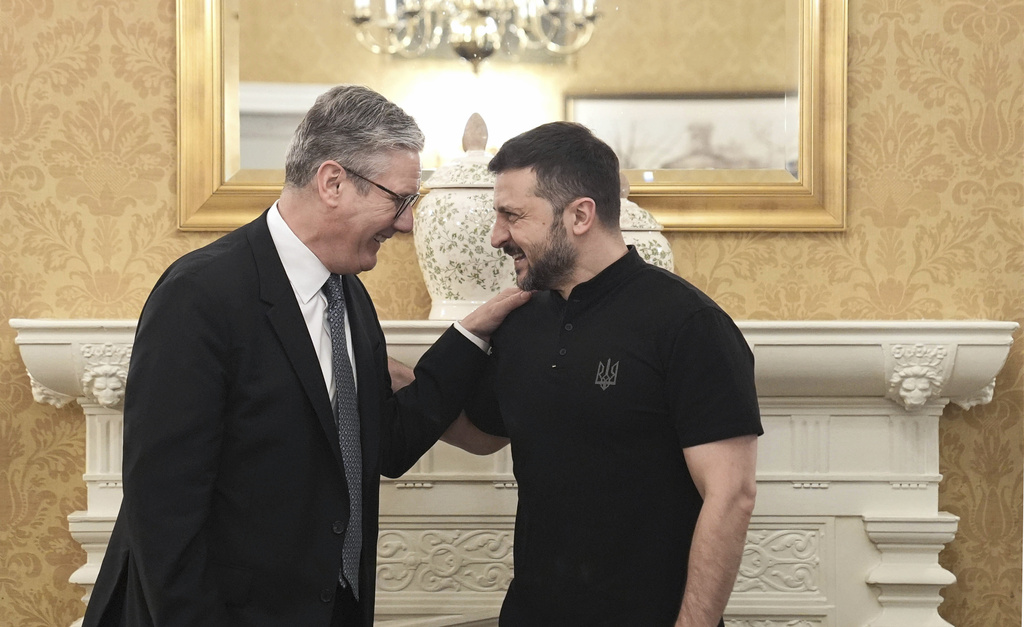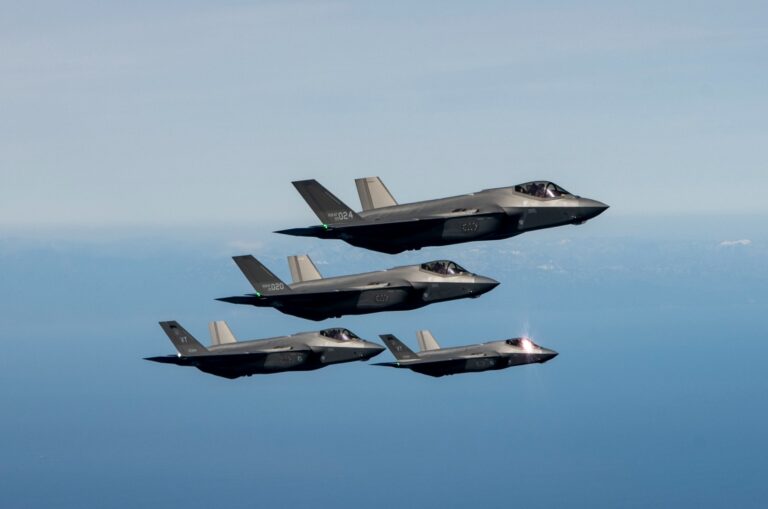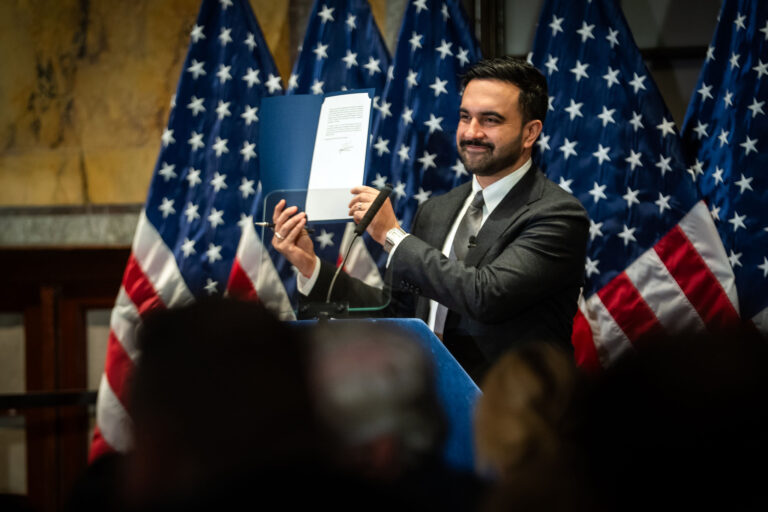Newly elected British Prime Minister Keir Starmer is making his maiden appearance on the international stage with a strong signal of support for Ukraine as he attends the NATO summit in Washington.
After he and other European leaders met American lawmakers, Starmer sat down with Ukrainian President Volodymyr Zelenskyy on Wednesday. They embraced and leaned in close, smiling, before holding private talks. Afterward, he reaffirmed Britain’s full-throated backing for Kyiv as it battles Russia’s invasion.
Starmer said he and his new Labour government would “use our opportunity here with our allies to make sure that that support is agreed” by NATO’s members.
As he arrived for the summit, Starmer added that it was also important for him to “reinforce, in a sense as a message to (Russian President Vladimir) Putin, the resolve of NATO — bigger now than it’s ever been, more united than it’s ever been and absolutely clear-eyed about the threat of Russian aggression.”
Starmer will also meet one on one with President Joe Biden, when both leaders are expected to reaffirm the “special relationship” between the U.S. and Britain that has been a hallmark of transatlantic cooperation for more than a century.
At the summit arrival ceremony, Biden and Starmer lingered a bit longer in their handshake than Biden did with other leaders, although their words were not audible.
Starmer left London after having been elected in a landslide July 4 victory. He says his message to the world from the U.K. is “We’re back,” after years spent fighting with European neighbors over Britain’s divorce from the European Union and an exhausting political soap opera at home.
He’s put security — encompassing the economy, energy and defense — at the heart of his plans. He wants to rebuild ties with the EU following Brexit, including by signing a defense and security pact with the 27-nation bloc, and to reassure Ukraine that there will be no change in Britain’s support.
He has promised to increase U.K. defense spending to 2.5% of gross domestic product, from the current 2.3%. But he has not said when, in contrast to the previous Conservative government, which pledged to do so by 2030. The Conservatives also presided over cuts to the U.K. armed forces during 14 years in power.
Starmer said his government will review defense strategy and spending, a process that could take up to a year, before setting a date for the 2.5% target.
The new prime minister says he has transformed the center-left Labour Party since taking over in 2020 from Jeremy Corbyn, a left-wing critic of NATO who once promised to get rid of Britain’s nuclear-armed submarines.
Starmer “will want to really show his credentials as a credible international statesman. And he’ll also want to fight against those old conservative attack lines, of Labour being bad for security, that they’re bad on foreign policy,” said Victoria Honeyman, associate professor of British politics at the University of Leeds.
“Keir Starmer at the moment doesn’t really need to make a big splash,” she added. “He doesn’t need to cause trouble. What he needs to do is create some goodwill to make some friends, build a bit of political capital.”
Starmer now says Labour is “the party of national security,” with an “unshakeable commitment to NATO” and a promise to keep Britain’s nuclear weapons.
But even as he tries to make a strong first impression on the Biden administration, Starmer and his team, like other NATO allies, are trying to prepare for the potential return of Donald Trump.
Starmer’s new government insists that the transatlantic “special relationship” transcends individual prime ministers and presidents. But some of Starmer’s priorities, such as fighting climate change and making the U.K. a clean energy superpower, are not likely shared by Trump.
In his arrival comments at the NATO summit, Starmer underscored how important those issues are to his government.
Starmer said his meetings at the summit are “an opportunity to make sure that those relationships are reset, for me to be able to say that our position on the world stage — leading on issues like defense and security, on climate change, and on energy — are so important.”
New Foreign Secretary David Lammy, a Harvard Law School grad with strong ties to the U.S., has been dispatched over the last few months to meet Republicans and Trump allies.
Lammy once called Trump a “neo Nazi-sympathizing sociopath,” but early this year said the former president’s attitude toward NATO had been misunderstood. He said he didn’t think Trump wanted the U.S. to abandon its European allies, but “wants Europeans to do more to ensure a better-defended Europe.”
In a meeting with Secretary of State Antony Blinken on Wednesday, Lammy heralded the partnership. “The special relationship means something, not just for our own countries but for the defense of freedom across the globe,” he said.
Blinken had opened the meeting with similar comments. “This is not only a special relationship, it is an essential one,” Blinken said. “We are together — the United Kingdom and the United States — on every critical issue of our time.”
(AP)











